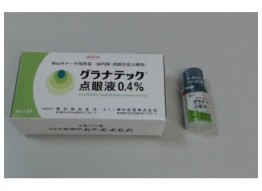Symmetrel (Amantadine) 50 mg from Japan (Parkinson, respiratory tract)
What are Symmetrel tablets 50 mg (amantadine)?
Symmetrel tablets contain amantadine, an antiviral medication that hinders the release of viral genetic material into host cells. This action not only impedes virus replication but also obstructs the process of virus assembly. In the early 2010s, certain doubts emerged among researchers regarding the efficacy of amantadine in treating the influenza virus. However, recent research has dispelled these concerns, demonstrating that Symmetrel indeed possesses effective antiviral properties, particularly against specific viruses such as influenza type A (as opposed to type B).
In addition to its antiviral capabilities, Symmetrel has garnered support through numerous studies for its effectiveness in addressing conditions like Parkinson's disease and various nervous system disorders. Amantadine exerts its influence on neurotransmitters like dopamine and serotonin within the brain. This mechanism contributes to the restoration of diminished drive and spontaneity that often follow cerebral infarction. Moreover, Symmetrel alleviates the symptoms associated with Parkinson's syndrome—such as limb tremors—by augmenting the activity of dopaminergic neurons in the brain.
Active principles: amantadine hydrochloride
Amount: 100 tablets
Maker: Sun Pharma, Tokyo, Japan
Indications:
- Parkinson's disease,
- nervous system disorders,
- sequelae of cerebral infarction,
- respiratory tract infections caused by viruses,
- ifluenza A type,
- drug-induced extrapyramidal effects.
How to take
For treatment of sequelae of cerebral infarction: adults should take 1 tablet (50 mg of the active principle) at a time,2 to 3 times a day. Your doctor may adjust the dosage according to your age and symptoms.
For treatment of Parkinson's syndrome: adult should initially take 2 tablets at a time, once a day, or take 1 tablet at a time, 2 times a day (100 mg). One week later, as a maintenance dose, take 2 tablets at a time, 2 times a day (200 mg). Your doctor may adjust the dosage according to your age and symptoms. However, daily dose should not exceed 2 tablets at a time, 3 times a day.
For treatment of influenza A infection: adults should take 2 tablets at a time, once a day, or take 1 tablet at a time, 2 times a day. Your doctor may adjust the dosage according to your age and symptoms. However, in elderly or patients with renal disorder, the daily dose should not exceed 2 tablets.
The minimum duration between the doses is 8 hours if your dosing schedule is once a day, 5 hours if your dosing schedule is 2 times a day.
Contraindications: do not use for children, pregnant or breastfeeding women. Do not use for patients with epilepsy or a history of it, convulsive predisposition, renal disorder. Never use for patients on dialysis.
Important information
As this medicine may cause dizziness, patient should avoid dangerous operations such as driving a car, operating machinery or working at heights.
Regardless of use of this medicine, during influenza illness, severe abnormal behavior may be observed, especially in school-aged children/minor men. It often develops within 2 days after fever. When recuperating at home, parents should be careful to take preventive measures against accidents such as falls for at least two days after fever.
If an allergic reaction occurs, patient needs to stop using the medicine and consult with their doctor. If patient is taking any other medication or treatment, they should consult with their doctor in advance.



